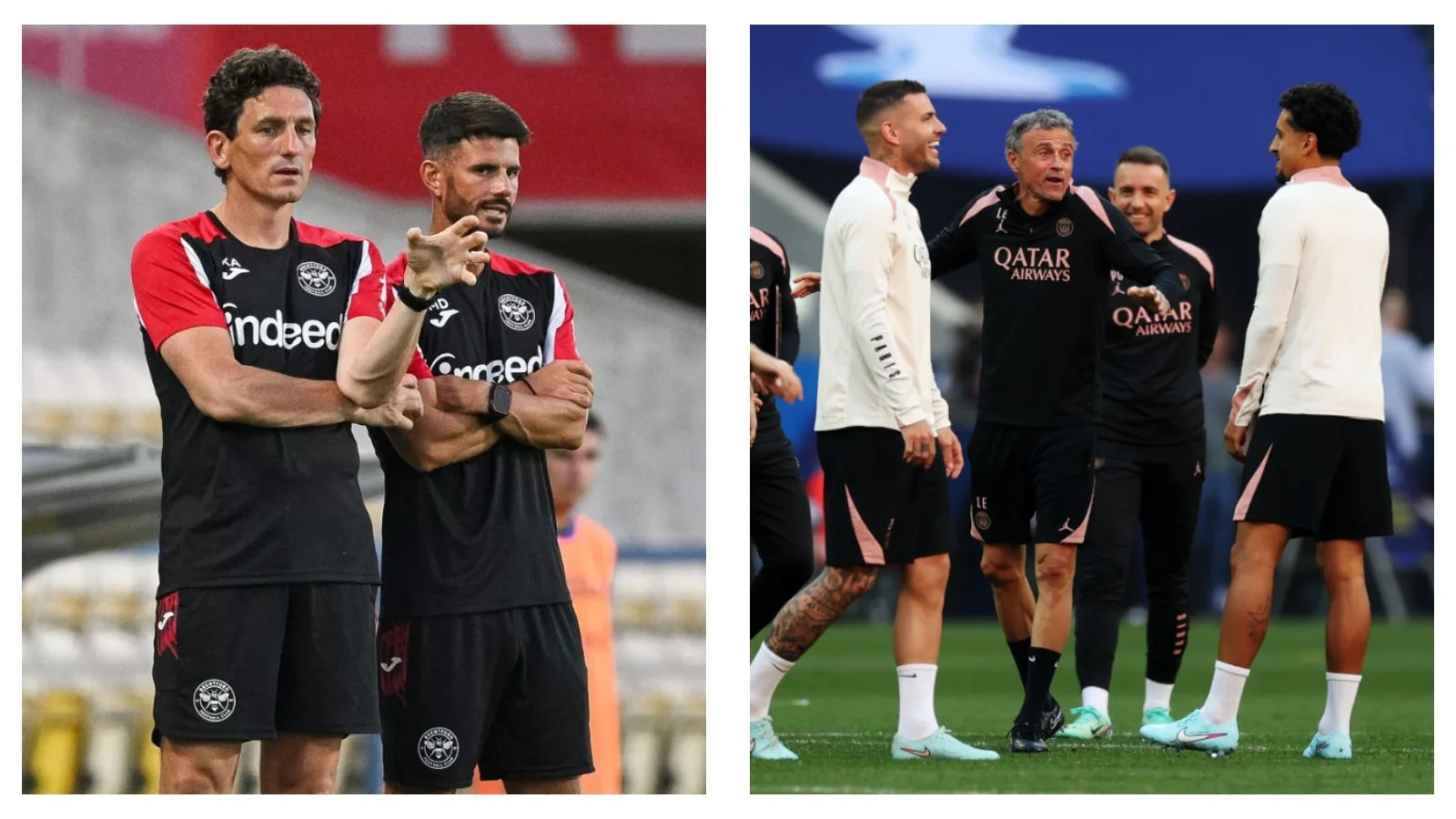‘Less is more’: How to effectively communicate with players and build long-term understanding
Top-level coaches across all sports increasingly recognise that clarity, not complexity, drives performance.
As Brentford manager Keith Andrews and PSG’s Luis Enrique have both shown, simplifying messages helps players act with confidence in high-pressure moments.
In this article, Sports News Blitz writer Ted Purcell explores why ‘less is more’ in coaching and how the science of memory underpins this powerful approach to communication.
How do top coaches communicate?
When he was appointed Brentford manager ahead of the 2025/26 season, Andrews faced a monumental task.
He replaced the visionary Thomas Frank, who oversaw the most transformative period in the club’s history.
Under Frank’s leadership, the club went from battling for mid-table in the Championship to becoming an established Premier League side, regularly taking points off the ‘Big 6’ while operating on a shoestring budget.
On top of losing their manager, Brentford were raided for many of their most talented players, including goalscorers Bryan Mbeumo and Yoane Wissa, club captain Christian Nørgaard, and first-choice goalkeeper Mark Flekken.
Eyebrows were certainly raised when Andrews, their set-piece coach, was tasked with steadying the ship. However, to his credit, Andrews has done a phenomenal job.
After 11 games, the club sit in 12th and have received plaudits for strong performances against Liverpool (3-2 victory) and Chelsea (2-2 draw).
So, what is his secret?
In a recent interview, Andrews gave insight into his management style and how he communicates ideas with his players.
He discusses how ‘less is more’ when it comes to delivering messages: “You think you might want to get four or five things through in terms of what we wanna do, how we wanna hurt the opposition.
“Sometimes, all it is is one thing – What is going to hurt the opposition? What is the one thing?
“Then drip-feeding that consistently … rather than making the players think too much about it.”
This view is echoed by Luis Enrique, who described how the coaching staff of the Spanish national team would “only give out information that is vital or can’t go unsaid, and above all, that is achievable, that the players can implement”.
“We always try to condense the information [we give them] and make it as succinct as possible,” he explained.
“Vital information, so that the players can start the match with the confidence to say: we all know how we play, I know what to do in every situation, and I’m going to enjoy it.”
Luis Enrique interview translated by Noah Klein, Film/TV translator, noahkleinn@gmail.com.
READ MORE: How to ‘actually’ cultivate culture: Lessons from high-performing sport cultures
The science behind the strategy
Back in 2017, Smith and colleagues investigated the qualities of an effective coach by interviewing nine professional cricket players.
In the players’ opinion, the most effective leaders were those who communicated clearly and concisely.
Essentially, they wanted to know what was expected of them in both training and matches, without being overloaded with information.
To support this, there is a range of evidence that shows we are limited to only remembering a small amount of information.
For example, Alan Baddley (1994) conducted a series of studies on short-term memory and found that participants could typically only remember three to four things, and they can only retain this information for around 20 seconds unless actively rehearsed.
On the pitch, there’s no time for rehearsal – players must react instinctively.
So, when a coach bombards them with a 10-point pre-match plan, the most critical instructions are often the first to be forgotten in the heat of the moment.
YOU MAY ALSO LIKE: Inside the mind: Deconstructing the cult of the manager - The four myths of ‘Zombie Leadership’
What are the practical implications for coaches?
The implications are clear. Here are three practical strategies for any coach, from grassroots to the professional level:
1. The rule of three
Before any game or training session, force yourself to identify the three most critical points for success.
What are the non-negotiables? Is it our pressing triggers? Our shape in transition? How do we defend set-pieces?
By limiting yourself to three, you prioritise what truly matters and ensure your message is memorable.
2. Check for understanding, don’t assume
The phrase “Does that make sense?” often yields silent nods.
Instead, to make sure that your players have actually understood the instructions, ask them questions like: “If X happens, what will you do?” or “If Y occurs, how will your position change?”
By asking these questions, players are required to demonstrate they’ve understood the instructions, and they can be corrected if needed.
3. Drip-feed and reinforce
As Andrews suggests, consistency is key – don’t deliver all your information in one pre-match monologue.
Introduce a key theme on Monday, reinforce it through a specific drill on Wednesday, and revisit it briefly during the pre-game talk.
This ‘drip-feeding’ method builds a deep, instinctual understanding over time.
READ NEXT: Inside the mind: How psychological skills are shaping football’s next generation
A note for grassroots coaches
You have less time with your players, making clarity and conciseness more important, not less.
In that, your ‘Rule of Three’ might have to become the ‘Rule of One or Two’.
Focus on one core defensive principle and one attacking idea for the entire season – this builds a solid foundation and prevents confusion, allowing young players to build confidence and enjoy the game.
In an era of increasing tactical complexity and data overload, the most powerful tool a coach has is often the ability to simplify.
The ‘less is more’ philosophy, championed by managers like Keith Andrews and Luis Enrique, isn’t about a lack of detail.
It’s about strategic focus. It’s the art of distilling a complex game plan into a powerful, actionable message that empowers players to perform with clarity, confidence, and freedom.
By communicating less, you enable your players to achieve more.
YOU MAY BE INTERESTED IN: Premier League news: This season or never for Mikel Arteta and Arsenal in their quest for title glory




